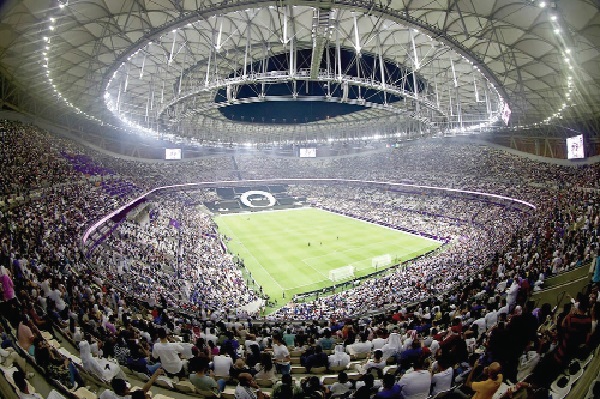
Beyond the game: Qatar’s World Cup legacy sparks economic growth and diversification
The 2022 FIFA World Cup may have concluded, but Qatar is still reaping the economic dividends of its massive investment in the tournament.
It was not just a sporting spectacle, but a strategic economic play that has yielded significant gains for the Gulf state, setting a precedent for global events as powerful catalysts for economic transformation.
The post-World Cup impact analysis by the International Monetary Fund (IMF) and other observers underscores how Qatar's investment in infrastructure and reforms has boosted its non-hydrocarbon sectors, diversified its economy, and positioned the nation for future growth.
The country’s journey serves as a case study on how hosting global events can be a launchpad for economic transformation and private sector development.
Strategic investments
Qatar’s bid to host the World Cup was more than just a sporting endeavour; it was a strategic move to diversify its economy away from its dependence on oil and gas revenues.
Since winning the bid in 2010, the country has invested heavily in infrastructure, spending over $200 billion to modernise its transport systems, enhance hospitality offerings, and build a state-of-the-art sports infrastructure.
The country’s massive public infrastructure investment programme, initiated in 2011, went beyond stadiums and sports facilities. While stadiums accounted for only about five per cent of the total infrastructure expenditure, the wider investment, spanning roads, ports, metro networks, and airports, was aimed at laying a foundation for long-term economic benefits.
IMF analysis reveals that this infrastructure drive significantly contributed to Qatar’s non-hydrocarbon real GDP growth, adding 5–6 percentage points annually over the past decade.
This solid growth trajectory has opened up opportunities in sectors such as tourism, logistics, real estate, and financial services.
With a built environment now equipped to accommodate increased business and tourist activity, Qatar is poised to attract more foreign direct investment and create new job opportunities.
The tourism sector has been a standout performer post-World Cup, benefiting immensely from the visibility and global exposure brought by hosting the event.
In 2023, visitor arrivals almost doubled pre-pandemic levels, a testament to Qatar’s growing appeal as a tourism destination.
As of August 2024, visitor numbers had already surpassed the four million mark, with the tourism board projecting six million annual visitors by 2030.
This influx has led to the rapid development of the hospitality and service industries, creating a ripple effect across the economy.
New businesses, ranging from high-end hotels and restaurants to cultural and recreational facilities, have emerged to cater to the rising number of international visitors.
Such developments not only generate employment but also diversify revenue streams away from traditional hydrocarbon exports.
The World Cup also served as a springboard for Qatar’s burgeoning logistics and transportation sectors.
The new Hamad International Airport, expanded ports, and the Doha Metro are all part of the country’s comprehensive infrastructure overhaul aimed at supporting future growth.
These projects have turned Qatar into a regional hub, facilitating trade and enhancing connectivity to global markets.
Reforms and growth
Looking ahead, the IMF’s latest annual economic review emphasises that Qatar’s key challenge is to transition from public sector-led growth to a private sector-driven model, as envisioned in Qatar’s National Vision 2030.
This will require deep structural reforms to increase productivity, foster a more competitive business environment, and leverage the progress made in digitalisation and climate action.
Alongside infrastructure investments, Qatar has pursued bold structural reforms to foster a more conducive business environment and improve labour protections.
It became the first Gulf Cooperation Council (GCC) nation to abolish the Kafala system, a sponsorship arrangement that restricted the mobility of foreign workers, who constitute approximately 95 per cent of the country’s labour force.
The government has also enacted new labour laws, implemented a minimum wage, and strengthened workplace safety regulations.
Qatar’s reform agenda extends beyond labour rights. The country has enhanced its appeal as a business destination by streamlining regulations, reducing bureaucratic hurdles, and establishing free zones that offer attractive incentives for foreign investors.
Leveraging World Cup legacy
The World Cup has propelled Qatar’s global profile, boosting visitor arrivals and cementing its status as a tourism and business hub.
The surge in international interest is translating into sustained growth in sectors such as hospitality, retail, and entertainment, generating significant non-oil revenues.
Qatar’s success in leveraging its 2022 FIFA World Cup legacy to bolster economic diversification is reflected in its ambitious Third National Development Strategy (2024-30).
Launched in January 2024, the strategy focuses on nurturing a robust private sector, advancing digitalization, and accelerating climate action, all while maintaining fiscal sustainability -- a strategic plan to guide the country through its next phase of economic transformation.
The country’s post-World Cup economic narrative is one of diversification, reform, and sustained growth.
While the immediate benefits of the global sporting extravaganza are evident, the challenge now lies in sustaining this momentum and ensuring that the growth achieved thus far is inclusive and long-lasting as Qatar builds on its World Cup legacy and emerges as a leading player in the global arena, well beyond the confines of oil and gas.